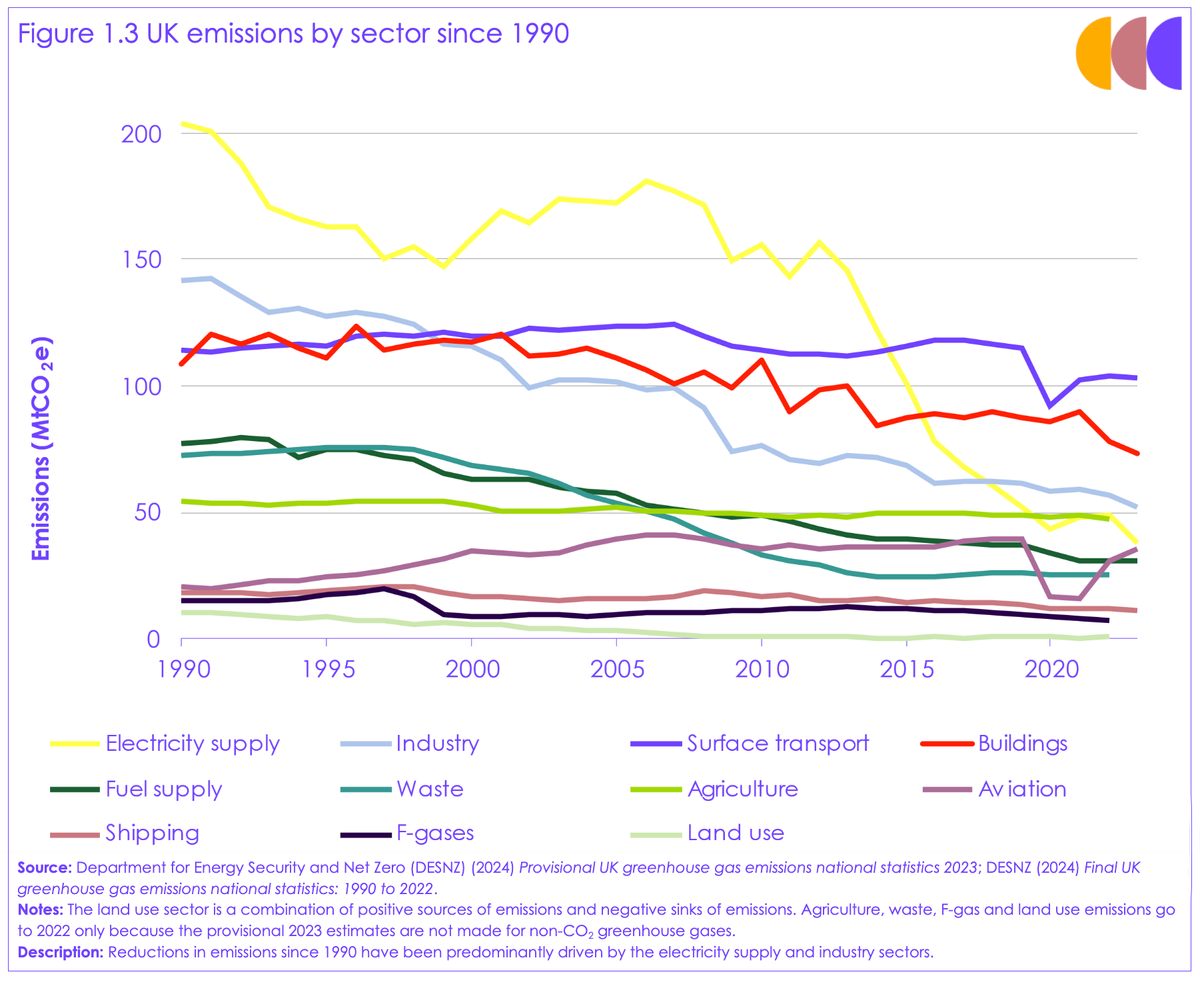
The Climate Change Committee reports that the UK has committed to reduce emissions in 2030 by 68% compared to 1990 levels, as its Nationally Determined Contribution (NDC) to the Paris Agreement. It is the first UK target set in line with Net Zero. Now only six years away, the say the country is not on track to hit this target despite a significant reduction in emissions in 2023, as much of the progress to date has come from phasing out coal-generated electricity, with the last coal-fired power station closing later this year.
‘Last year saw a significant fall in emissions, as well as some good progress on policy by the previous Government: confirmation of the zero-emission vehicle mandate; leaving the Energy Charter Treaty, which is not Net Zero-aligned; and an increase to total funding and individual grants for heat pumps in homes via the Boiler Upgrade Scheme, which has led to a significant increase in take-up.’
Their assessment is that only a third of the emissions reductions required to achieve the 2030 target are currently covered by credible plans.
They have set out ten priority actions for the remainder of this year ‘to make up lost ground’ (summarised below), before the committee publish its advice on the Seventh Carbon Budget and an updated path to Net Zero early in 2025:
- Make electricity cheaper.
- Reverse recent policy rollbacks.
- Remove planning barriers for heat pumps, electric vehicle charge points and onshore wind
- Introduce a comprehensive programme for decarbonisation of public sector buildings
- Effectively design and implement the upcoming renewable energy CfD auctions.
- Accelerate electrification of industrial heat.
- Ramp up tree planting and peatland restoration.
- Finalise business models for large-scale deployment of engineered removals.
- Publish a strategy to support skills.
- Strengthen NAP3
You can read their full report with all links and recommendations here

Architects Declare comment on the report:
‘While emissions are ~50% lower than they were in 1990, the rate at which they are falling needs to be ~6%/year if we’re to hit our 2030 targets. The Electricity industry was responsible for the biggest cuts last year, with emissions outside of this sector falling by only 1.6%, far lower than is needed. The report states that 2/3 of the cuts needed to hit this are not currently covered by credible policies, which need to be drawn up and implemented quickly, in order to get on track.
On a positive note, the CCC states that the UK concrete and cement industry has cut its carbon footprint by 53% between 1990 and 2018.
However, it also goes on to say that certain policies in the built environment are halting progress, such as the last government’s policy to exempt 20% of households from the phase-out of fossil-fuel boilers by 2035.
The CCC report mirrors many of the points in our Building Blocks manifesto, including how much benefit can be gained both economically and socially, from a just transition to net zero, such as savings of £1.3 billion for the NHS through retrofitting cold homes and up to 725,000 jobs created through the low-carbon sector.
The CCC make specific recommendations for the government to fill the policy gap, many of which tally with those in our Building Blocks Manifesto. We encourage the new government to take these policies on board, to look at our recommendations in the context of the built environment, and to enshrine crucial action in legislation early on in the new parliament.’
For further AD links including their Building Blocks Manifesto click here.

